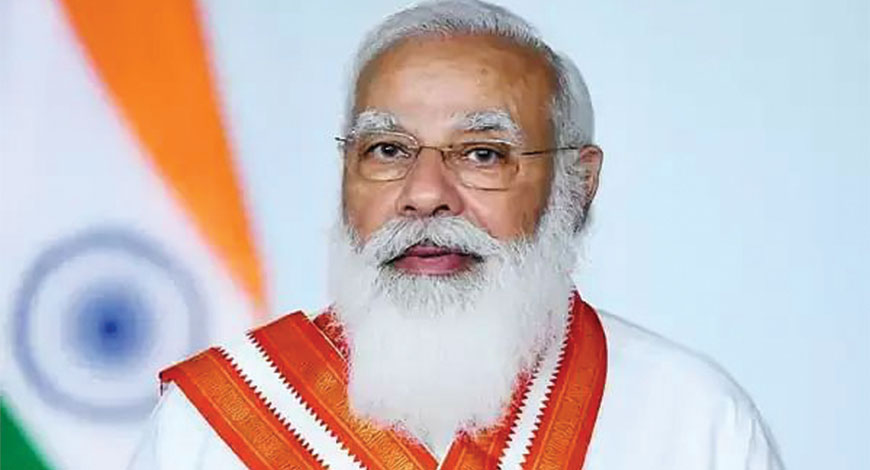26 Apr , 2021 By : Debdeep Gupta

When a change of guard took place on April 19 in Cuba and the Castro brothers relinquished power after 62 years, India was one of the few countries which had prepared itself for the change. Six years ago, New Delhi initiated far-reaching action to ensure continuity in engaging Havana. It not only identified Cuban President Raul Castro’s successor, but rolled out the red carpet for him on a visit to India, during which Miguel Mario Díaz-Canel Bermúdez was feted as if he was already a head of state.
On April 19, Díaz-Canel was elected First Secretary of the Cuban Communist Party, the most powerful job in the island nation. This came after he apprenticed as President for three years under the watchful eyes of Raul Castro. Raul Castro, the last of the triumvirate of himself, Fidel Castro and Che Guevara, which ruled Cuba since 1959, was party chief until last week, President until 2018 and the world’s longest-serving Defence Minister for 49 years.
Narendra Modi’s decision to receive Díaz-Canel only 10 months into his prime ministership, was one of the early surprises of Modi’s foreign policy. Díaz-Canel was then First Vice President of the Council of State and had been in that office for two years. The Ministry of External Affairs (MEA) was unenthusiastic about getting Díaz-Canel to New Delhi when it was first proposed a year earlier, and was taken aback when Modi warmed up to the suggestion that came from the Indian Mission in Havana a second time. By then S Jaishankar had taken over as Foreign Secretary and knew Modi’s mind.
Díaz-Canel then was on his way to Angola to celebrate 40 years of the establishment of relations between Cuba and Angola, and then on to Windhoek for the silver jubilee of Namibia’s independence. He promptly agreed to extend that trip to New Delhi.
High-level meetings between Cuba and India have never been short of drama with friendly flavour. Fidel Castro’s bear hug of Indira Gandhi at the Non-Aligned Summit in 1983 symbolised the warmth of friendship between their two countries for many years afterwards. SM Krishna, an old-school socialist from the Praja Socialist Party, was a youthful, romantic admirer of the Castro brothers since his days as a Fulbright Scholar at George Washington University in the United States capital.
As External Affairs Minister, Krishna insisted on hosting the Heads of Indian Missions in Latin America in Havana so that he could finally convey that admiration in person to Raul Castro. Cuba’s President did not disappoint and regaled Krishna with anecdotes. Raul Castro was so comfortable with Krishna that he let his guard down and displayed traits of black humour. The Pentagon was not his worry as Defence Minister, Raul Castro told Krishna. The real worry was that Cuba’s formidable military hardware was becoming useless in the island’s rust-prone, coastal environment.
Díaz-Canel’s visit to India six years ago was not without its drama either.
In Africa, which has very poor connectivity with India, he was to fly from Windhoek to Johannesburg, then to Doha and finally to Delhi. But his African flights were delayed. Doctors working overseas are Cuba’s most potent soft power. In Qatar, the ruling elite are cared for by Cuban doctors. When news reached them that Díaz-Canel’s flight from Johannesburg was late, they ensured that his connecting flight from Doha to Delhi did not take off until that flight landed.
Meanwhile, in New Delhi, the MEA’s protocol officials were on pins. When the Cuban arrived on time at 7, Race Course Road, as it was then called, Modi received him in the porch of his official residence with the comment that whenever Cuba is mentioned, he thinks of the island’s doctors who serve all over the world and about his hopes of India-Cuba collaboration in medicine. Díaz-Canel was swept off his red carpet.
Six years after those opening words between Modi and Cuba’s new leader, there is a sense of prescience about them in today’s world, reeling from COVID-19. Every little vaccine negotiation between global pharmaceutical giants and Indian counterparts is breathlessly reported by the national media. Sources and contacts this author has in Havana have confirmed that the Cubans are quietly in negotiations with a company in Hyderabad to produce their two anti-coronavirus vaccine candidates once they receive approvals from India’s regulatory authorities.
Cuba has a stellar record of producing vaccines for the world. Its scientists produced the first Meningitis B vaccine in the late 1980s despite the odds caused by a US embargo. After former US President Barack Obama mended fences with Havana, vaccine cooperation between the US and Cuba has taken off. The latest Cuban vaccine undergoing trials at a cancer centre in the US is for treating lung cancer.
Like everything else in Cuba, vaccine development is also not far removed from its ubiquitous revolutionary fervour. Its leading anti-coronavirus vaccine candidate, now in Phase III trials is called Sobrena, which means sovereignty in Spanish. Another is Abdala, commemorating a revolutionary poem by national hero Jose Marti. The third vaccine undergoing trials is Mambisa, a nasal spray, named after a band of Cuban guerrillas who fought against the Spanish.
The Finlay Institute, which Fidel set up as his country’s vaccine pioneer, has a long history of association with the Serum Institute of India in Pune. Cubans working on Sobrena at Finlay said they would have straight gone to SSI with their vaccine candidate, but think the Pune producer has its hands full. Hence, the negotiations in Hyderabad.
Iran, Mexico, Venezuela and some African countries are already in negotiations to buy Cuban vaccines, the first from Latin America. Given India’s vaccine requirements, New Delhi may not be far behind because of India’s history of scientific cooperation with Cuba.
0 Comment